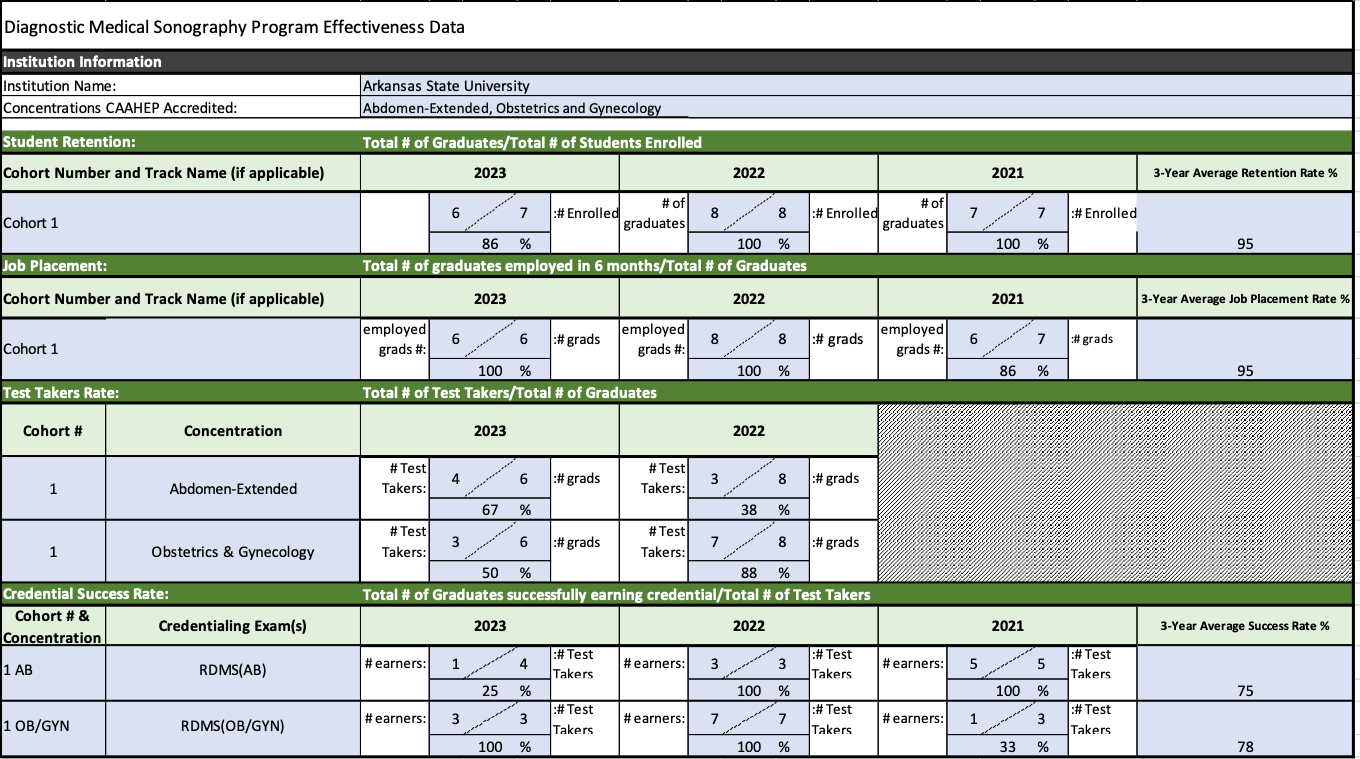Diagnostic Medical Sonography
College: College of Nursing and Health Professions
Department: Medical Imaging and Radiation SciencesThank you for your interest in the diagnostic medical sonography track of our radiography program! Our sonography program is a continuation of our radiography program. It is a 4-year degree program. Before students apply to sonography, they must first complete an accredited radiography program. We have a radiology application process every October. Applications for the radiography program are due October 31st.
Information regarding the radiography program can be found here. https://www.astate.edu/degrees/bsrs-radiologic-sciences-radiography
Our radiography program is 18 consecutive months, meaning you will attend spring, summer, and fall semesters. Then in the spring of your second year, you will apply for your specialty program. Specialty applications are due April 1st.
The sonography program is 14 consecutive months, that focuses on abdomen, small parts, ob/gyn, and limited vascular. All courses for the radiography and sonography programs are on campus, not online. Clinical rotations are planned in the Northeast Arkansas, West Tennessee, and Southeast Missouri areas.
Bulletin Information and list of classes can be found here. https://catalog.astate.edu/preview_program.php?catoid=9&poid=2807&returnto=272
*We are currently looking to make changes to the prerequisites and application process, so this information is subject to change.Junior Year
Radiography: provides students with the skills necessary to administer radiation for imaging various body systems.
Senior Year
Diagnostic Medical Sonography: provides students with the skills necessary to operate sonographic equipment and control images through various enhancements.
All areas of study include both classroom instruction and experiences in a clinical setting in an area health care institution. This provides students with opportunities for direct patient care involving those who are sick and injured, as well as those for whom radiologic diagnosis or treatment is indicated. For those choosing informatics or management, clinical internships provide opportunities for learning the necessary skills in those arenas.
All students, prior to formal admission, will be advised by the Departmental Advisor when planning their schedule.







 The diagnostic medical sonography program is accredited by the Commission on Accreditation of Allied Health Education Programs (CAAHEP) upon the recommendation of the Joint Review Committee on Education in Diagnostic Medical Sonography (JRC-DMS) in the general concentration, Abdominal and Obstetric/Gynecologic Sonography.
The diagnostic medical sonography program is accredited by the Commission on Accreditation of Allied Health Education Programs (CAAHEP) upon the recommendation of the Joint Review Committee on Education in Diagnostic Medical Sonography (JRC-DMS) in the general concentration, Abdominal and Obstetric/Gynecologic Sonography.